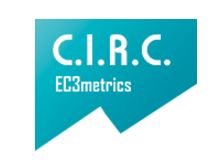Authors
Abstract
Abstract: Objective. To understand the meaning of the experiences of sexual incestuous abuse (SIA) that three families have built, as well as the conceptions, beliefs and values that perpetuate or transform the above-mentioned experience inside the family intimacy. Method. Phenomenological hermeneutical research with narrative methodology, which implied an information generation process through the stories narrated by the families about their lives. Three families who are being attended by the Acercamiento (Reconciliation)-Asperla program in the city of Medellin were interviewed. Interviews were conducted with the girls who were victims and a significant figure, whether their father or mother. Results and conclusions. The biographical events on the family narratives did not determine the causes of abuse in a continuous and uni-causal line, but as metaphors that contributed to generate comprehension of the meaning that the family built around this experience. Among the most relevant are cultural and familiar anchorages of the abuse and mistreatment; disintegration and reconfiguration on the family; reflections on the interference of the State and the law; the position of parents facing sexual abuse of their daughters; and finally, the meaning constructed by the girls about the experience of abuse.
References
Bolívar, A. y Domingo, J. (2006). La investigación biográfica y narrativa en Iberoamérica: campos de desarrollo y estado actual. Forum: Qualitative Social Research, 7 (4), 1-43.
Botero, P., Salazar, M. y Torres, L. (2009). Prácticas discursivas institucionales y familiares sobre crianza en ocho OIF de Caldas. Revista Latinoamericana de Ciencias Sociales, Niñez y Juventud, 7 (2), 803-835.
Builes, M.V. y Bedoya Hernadez, M. (2008). La familia contemporánea: relatos de resiliencia y salud mental. Revista Colombiana de Psiquiatría, 37 (3), 344-354.
Builes, M.V. y López, L.M. (2009). Relatos reconfiguradores de la violencia familiar en Antioquia (Colombia). Revista Colombiana de Psiquiatría, 38 (2), 248-261.
Cornejo, M., Mendoza, F. y Rojas, R.C. (2008). La investigación con relatos de vida: pistas y cuestiones del diseño metodológico. PSYKHE, 17 (1), 29-39.
Cyrulnik, B. (2008). Los patitos feos. La resiliencia: una infancia infeliz no determina la vida. Barcelona, España: Gedisa.
Flórez Días, I.L. (2011). Los delitos sexuales contra niñas y niños como expresión de la cultura patriarcal. Revista de la Facultad de Derecho de Mexico, 255.
Henao, C. (2002). La política de infancia y familia desde la perspectiva de la protección integral del Instituto Colombiano de Bienestar Familiar. En Gallego Montes, La familia en la construcción de lo público. Un reto desde la modernidad (pp. 203-213). Manizales, Colombia: Universidad de Caldas.
Palacio, M.C. (2009). Los cambios y tranformaciones en la familia. Una paradoja entre lo sólido y lo líquido. Revista Latinoamericana de Estudios de Familia, (1), 46-60.
Palacio, M.C. (2010). Los tiempos familiares en la sociedad contemporánea: la trayectoria de una configuración. Revista Latinoamericana de Estudios de Familia, 2, 9-30.
Ravazzola, M.C. (2003). Historias infames: los maltratos en las relaciones. Buenos Aires, Argentina: Paidós.
Taylor, S.J. y Bogdan, R. (1987). La entrevista en profundidad. En S.J. Taylor, Introducción a los métodos cualitativos de investigación: la búsqueda de significados (pp. 100-132). Barcelona, España: Paidós.

 PDF (Español)
PDF (Español)
 FLIP
FLIP




















